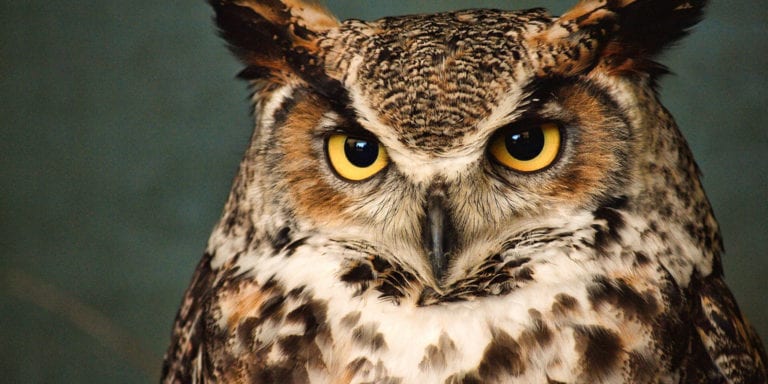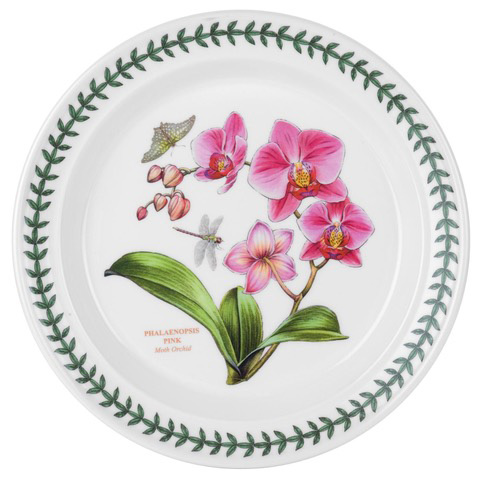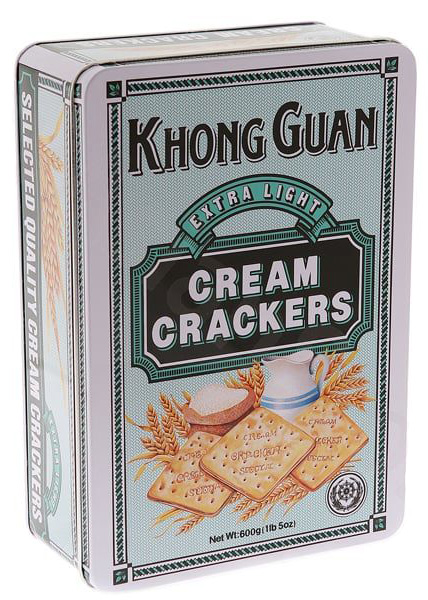
Round and Round 21 ended with the bookseller about to prepare a lavish meal for himself and his new partner in the bookshop—Mathilda. A cat.
He went to the pantry and bent and retrieved both cans of Genova tuna from the floor. Mathilda had pushed them off a shelf in order to get his attention. He slipped two Portmeiron plates and one small bowl from the cupboard above. He loved Welsh things, and these colorful floral dishes reminded him of his visits to the folly town of Portmeiron in Wales. He was also a big fan of the paranoid television series The Prisoner, much of which was filmed in the “Village” of Portmeiron.
He recalled the opening scene of each of the episodes:
“You are Number 6.”
“I am not a number. I am a free man!”
“Hahahahaha…”
Funny how prescient that production was.
‘We are all just numbers now,’ he thought ‘In so many ways.’
He raised the tab on the can and pulled off the metal lid. He used the lid as a strainer and drained the fishy water into the bowl. He shook the upside-down can over the plate until its contents slid out. It fell onto the plate with a gentle plop. It maintained its cylindrical shape. It was nearly all solid muscle. That’s why he liked this brand and was willing to pay more for it.
Then he repeated the process with the second can. He left the counter and returned with some mayonnaise, a small jar of dried dill weed and a jar of chopped Italian hot cherry peppers. He had also brought a fork. He used the fork to scoop out some mayo and shook it off onto the tuna. It made a gentle plopping noise.
He twisted the lid off of the pepper jar and gingerly shook some onto the mayo. He didn’t want too much of the hot stuff. It could overwhelm the delicacy of the recipe. Then he generously sprinkled the dried dill on top of it all. With the fork, he mashed and swirled the concoction until it was blended to his satisfaction.
“I need to get some dill relish, Mathilda. But we can rough it this first night. I wasn’t expecting company.”
The cat seemed to give a little nod. Her tail thumped sensuously upon the counter.
“I have half a bottle of Sauvignon Blanc in the fridge,” he said, turning to go retrieve it. “It’s a few days old, but it should be ok. Good enough me anyway. Would you like some water?”
He returned with the wine bottle, a jelly jar glass and another small Portmeiron bowl two thirds full of water.
“I’m afraid all I have is tap.”
He twisted the cork from the bottle and filled the old glass nearly to the top. It was an ancient Peter Pan glass from the 60s he’d gotten on a house call long ago. It reminded him of his childhood, and the little rewards that could be had when Mom took him to the grocery store.
“Crackers!” he exclaimed. “I don’t suppose you’d want any, but they’re the perfect vehicle for my tuna salad.”
He went to the pantry and returned with a very large tin of Chinese water crackers. He used the end of the fork to pry up the metal lid.
“Well, shall we?” He picked up his fork and had it poised above plate.
Mathilda emitted a deep rumble from within. It wasn’t quite a growl. But then it wasn’t precisely any other sound either. The last few inches of her tail flicked impatiently upon the counter like someone tapping their finger to indicate something was missing.
“Napkin?”
Mathilda inclined her head toward the cylinder of meat before her.
“Ah…the presentation!”
He started to use his fork but noted there was mayo and dill and cherry pepper adhering to it.
“Once more into the pantry! Cooking is such a chore.”
He returned with a clean fork and gently chopped up Mathilda’s unadorned tuna.
He raised his glass: “Here’s to Snallygasters, bookshop mysteries…” he paused and added wistfully: “And absent friends.”
He put his lips to the glass and then withdrew it.
“And to books!”
Mathilda purred deeply and lapped up a bit of water. They then each tucked into their plates. She ate hungrily but daintily. Not a sound of mastication came from her. Every once in a while, she emitted a short soft purr.
The bookseller sipped down half the glass and sighed.
“Long day.”
He then forked a generous scoop of tuna salad onto the thick cracker and bit it in half.
“Mmmmmm…haute cuisine!”
Mathilda did not look up, as if ignoring him would be derision enough at his lame bon mot.
“This is going to be a but of a dull meal if you won’t join in the conversation, Mathilda.”
She raised her head and looked at him. Her golden eyes changed to a piercing icy blue.
“Hmmmm…ok. I’ll do all the talking.”
He finished one cracker and then scooped another portion onto another.
He ate that and then finished the glass of wine in one draft.
At that, Mathilda raised her head, cocked it and looked at him askance as he poured another glass.
“Don’t worry. I’ll pace myself. There’s only this half bottle in the place right now. You know, I like the Australian and New Zealand Sauvignon Blancs just fine, but I prefer French. Also, I refuse to yield to the political correctness of plastic and metal twist tops over cork. Ridiculous!” he huffed.
Mathilda nibbled away at her tuna aloofly.
“I mean, they can plant lots of cork trees. They’re renewable!”
The meal proceeded mostly in silence until Mathilda’s plate scraped gently over the counter a couple inches as she pushed at it to get the last morsels of fish.
Then she sat up straight and began demurely cleaning herself using her tongue and paws.
The bookseller poured the last couple inches of wine and began clearing the plates and jars and stuff from the counter. He dropped the empty bottle into the recycling bin. The cork he left on the counter. He would take that home and add it to the large basket of them he had in a corner. Why did he save them?
“Dunno,” he thought aloud. “Maybe to make a boat one day. Reminiscences? Maybe. But once in with the others, they are all anonymous. Anyway…corks are…cool.
There were some very happy times in the cork baskets.
He sighed at the remembrances of the few faces and embraces there’s been in his storied career.
He made quick work of washing the dishes.
“Do you want me to save the bowl of drainings? My dogs used to love to lap them up. They’d push a bowl or the empty tin all around the kitchen floor until they had cleaned off any remnant of the piquant taste.”
Mathilda turned her head and gave a derisive sneeze off the far side of the counter.
“Guess not.”
When the pantry was in order—mostly, the bookseller returned and reached to scratch behind Mathilda’s ear. She rose to her full height and stretched magnificently in happy response.
“You’re big!”
Her muscles tightened, and she glared at him.
“I mean in a good way. You’re magnificent. Beautiful.”
Her body softened, and he continued stroking her. She moved to his touch and positioned herself wherever she was in the mood to be scratched or stroked.
“Now. We need to discuss a few things. Where do you want to live? You can come home, and we can commute together. Or you can live here all the time.”
At that, Mathilda moved in and walked under his chin. He was bent over the counter. The length of her back moved along that bony protuberance suspended just a foot or so above the counter.
Something in her body language conveyed that she wanted to live in the bookshop.
“So Althea gets her wish. We have a bookstore cat, after all. I’ll go get a quilt from the van until I can get you a proper bed. I know Althea kept some sanitary feline necessities in the shed. I could tell she’d bring you in when I was away sometimes.”
Soon he had things all set up, and he was ready to leave.
“You gonna be ok?”
Mathilda nuzzled his hand.
“Strange things can happen here. But you know that. Anyway, I think the place is exhausted. I know I am. Goodnight, Mathilda.”
He stopped and turned and returned to the counter.
“Where is she, Mathilda? Is she all right?”
The feline rose and circled and then sat facing west.
With that, he went to the door and pushed it open. The little silver bell above it gave a soft surprised ring as if it had been dozing.
Ahead on the porch railing, a big horned owl was perched. He could tell by its silhouetted “ears.” She turned her head nearly 180 degrees to observe his approach.
“Standing guard?”
The owl flexed its legs downward and then pushed up and took to the air silently.
The bookseller pulled himself up onto the front seat of the van. His right knee gave a sharp twinge.
“Damn. I must have twisted it in all the excitement. Gettin’ old.”
He started the old van, and it rumbled and coughed a bit before roaring to life. He drove across the lot to the entrance. He stopped, thought a moment and then turned right instead of left—the direction home. He headed toward Althea’s place. He turned up her wooded lane. When he got to its end, the headlights hit the house. He flipped on the brights.
It was as if she had never lived there.
The van illuminated a sad old dull white clapboard cottage. The porch was bare but for an old spartan wooden rocking chair. He could see paint was peeling on it here and there. It moved slowly back and forth, though there was no wind moving leaves in the trees. The gardens were gone. Scruffy lawn grew right up to the latticework beneath the porch. There was a hole at the bottom in the lattice, and he supposed a groundhog had taken up residence beneath it.
He put the van in park and clambered out. He stood next to the van with its various mechanical noises singing a running song from beneath the hood.
There were off-white shades pulled down in each window like old closed eyes. Some had tears to their sides.
He didn’t want to approach. He stood there staring at the sad old place.
“Lifeless” was all he could think.
Energy poured from his body in profound sadness. His shoulders drooped, and he felt suddenly aged. He wanted to cry or sob or something. But there was nothing inside. He was entirely dry. All about him was dryness. A sad desiccated abandoned house. Dry dead grass, weeds and dirt all about it.
He looked upward as a brilliant shooting star dashed across it from the eastern horizon to the west.
He heard a soft thump from the porch. He looked, and there was a small flat package before the door.
“Odd I didn’t see that. FedEx must have misdelivered something. No one has lived here for years.”
He stepped to the white picket gate, which sagged into the ground from age and deterioration. He lifted it a bit, so he could pull it open. He went up the path and started up the steps. There were seven of them.
The first step creaked in D major. The second E. The third F. The fourth G. The fifth A major. The sixth B flat. The top step creaked in C major.
‘D minor. The saddest key,’ he paused and thought. ‘There’s some magic left in the old place after all.’
Tears rolled down his cheek.
He crossed the porch, bent and lifted the package. It was brown kraft paper. It was tied with brown jute. There was no marking or writing on it.
“Feels like a book. I’ll take it and see if I can find out who it belongs to.”
Hr returned across the porch. He wanted to hurry down the steps to see if he could create a creaky trill, but his sore leg had him limp down one step at a time.
He pulled himself back up into the van, cut the wheel hard and began circling to leave. The headlights flashed upon the bent and leaning mailbox. The horned owl was perched upon it, and its eyes blinked black and gold in the brief brightness.
He headed down Althea’s lane and soon saw the lights of the real world far up ahead.
He sure didn’t want to go there. At the end of the lane, he turned toward the country to take long and winding back way home. There was no rush to get there. He had nothing to go home to.



There are no comments to display.